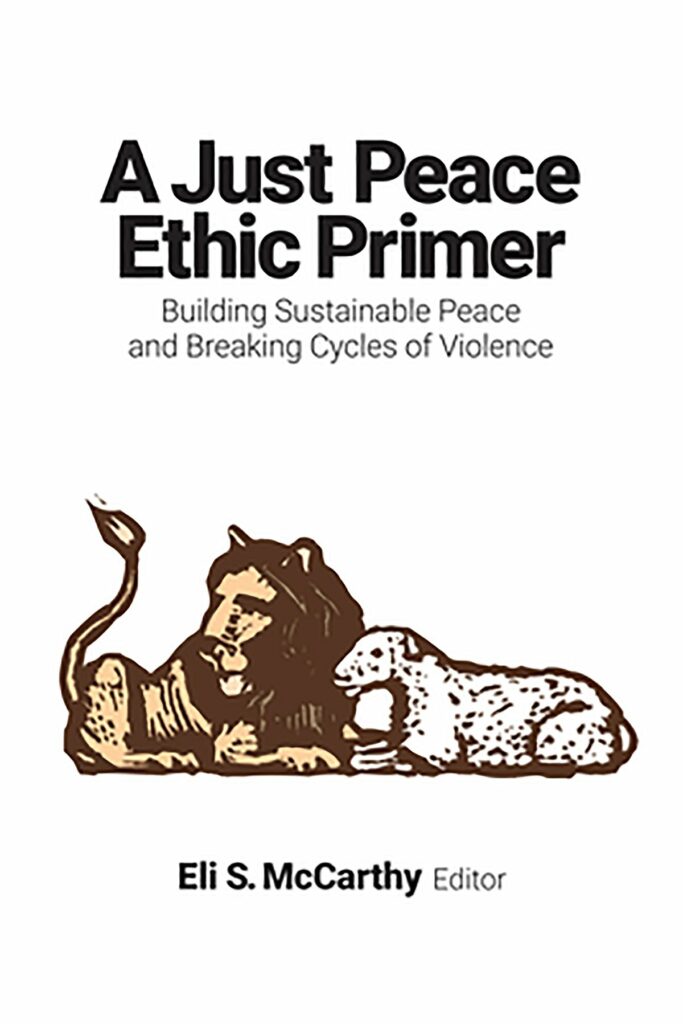“A Just Peace Ethic Primer: Building Sustainable Peace and Breaking Cycles of Violence,” edited by Eli S. McCarthy. Georgetown University Press (Washington, 2020). 275 pp., $49.95.
This excellent collection of essays, written by Catholics with experience and expertise in what they describe, goes deeply into Catholic social, moral theology and practice.
Its title, “A Just Peace,” echoes the ancient Catholic “just war” principle, and remakes it to argue that the authentic Catholic approach should be the use of creative, nonviolent ways of resolving conflicts and, more importantly, addressing the underlying issues that foster violence between and within nations and societies around the world.
Using Jesus’ Sermon on the Mount as a theological basis, the initial “framing essays” look through the history and development of Catholic traditions on peace, war and how to influence societies in such a way that deep-seated conflicts can be negotiated.
The essays show what needs to be done, on a practical level, to build or rebuild nations and societies in such a way that their internal and external conflicts can be resolved once violence breaks out or, again more importantly, before violent conflicts take place.
McCarthy in Chapter 3 spells out how Catholics need to be raised and educated in Catholic virtues in order to embrace within themselves as adults a “just peace ethic.”
His is a vision that can be used on a practical level to bring about the changes necessary for nations and societies to help both sides of a pending or occurring conflict to understand they will benefit from a peaceful resolution that will help all people within a given area of actual or potential conflict.
The four essays in Part Two delve into “domestic cases” within the United States, discussing immigration and church sanctuary possibilities, environmental justice, the possibility of a just peace approach to anti-Black violence, which is tragically so prevalent in our country, and ending the death penalty.
In all these, Catholic traditions and the teachings of the popes, especially during and since the Second Vatican Council, are carefully cited. Readers of this book will learn the official teaching of the Catholic Church and how it developed and is applied and understood in changing times and situations.
The seven essays of Part Three describe cases from various countries and what the local churches in those countries did and might do to make just peace possible through the “bridges” of “people power.”
Discussed are the efforts of people in the midst of the civil war within South Sudan, gang violence in El Salvador, confronting ISIS and its attempted genocide of the Yezidis, peacebuilding in Kenya, countering rape as a weapon of war in the Democratic Republic of Congo, and the role of women in fostering the diplomacy in the peace process of Mindanao.
In the conclusion to the book, McCarthy summarizes the essays and offers practical “next steps” to further the just peace ethic within the hearts and minds of all Catholics, especially through education and preaching, to make the world a better place for all humans, whatever their faith, nationality or ethnicity.
Also of interest: “Advancing Nonviolence and Just Peace in the Church and the World,” edited by Marie Dennis, Rose Marie Berger and Ken Butigan. FastPrint Publishing (Peterborough, England, 2020). 322 pp., 20.50 pounds sterling (about $27US).
“Peacebuilding and Catholic Social Teaching” by Theodora Hawksley. University of Notre Dame Press (Notre Dame, Indiana, 2020). 340 pp., $42.
Fisher is a professor of theology at St. Leo University in Florida.

